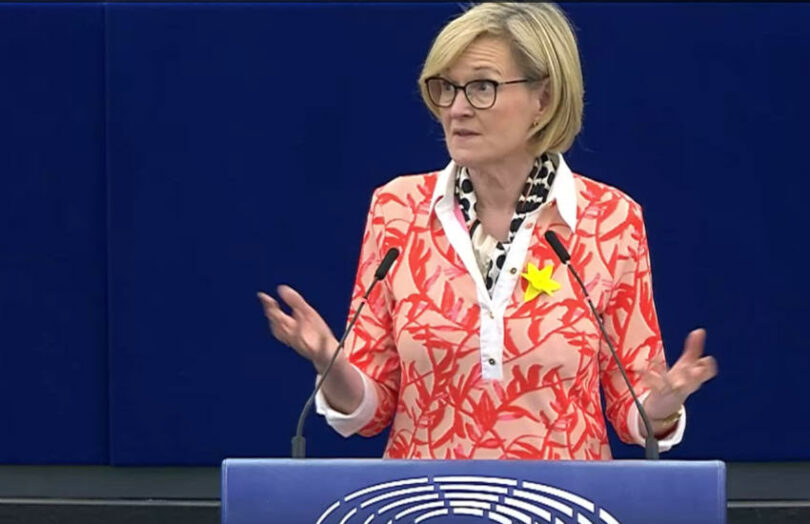On Wednesday, the European Parliament held a plenary debate on the issue of a digital euro. It was the first such discussion at the legislative level, and it reflected the range of opinions among European lawmakers on the matter of central bank digital currencies (CBDCs). The European Central Bank (ECB) has presented the digital euro as a solution to address future integrity, resilience, and integration challenges, but Members of Parliament (MPs) expressed concerns about privacy, state control, and the role of banks.
“Good money can drive out bad”
Some MPs argued that a CBDC could benefit the European economy significantly. For example, MP Tang (Netherlands -S&D) claimed that the digital euro “makes absolute sense” because it could encourage banks to let customers benefit from interest rate hikes if allowed to compete with deposits.
Similarly, MP Hohlmeier (Germany -PPE) described the digital euro as a “meaningful opportunity” and was broadly supportive of both a wholesale and retail option, although she admitted that the former is likely “easier and quicker.” She highlighted interoperability and cross-border payment features and pleaded that the regulatory framework be flexible enough to support future innovation.
It’s all in the CBDC design
A second group of MPs recognized the digital euro as a “transformative project that could have positive effects on society as a whole” but cast doubts on its current design. For instance, MP Urtasun (Spain -Verts/ALE) expressed concerns about the involvement of financial institutions in technical advisory boards, as they may have vested interests in preserving current banking models and could try to limit inclusive options for European citizens.
Several mentioned the lack of a clear use case that addresses the needs of citizens, echoing a parliamentary briefing.
Others also worried about the displacement of cash and the potential privatization of money, urging the ECB to grasp the digital euro’s “full potential.” Sustaining access to cash was a bipartisan view, with the left focused on inclusion and the right keen on its freedoms.
Protect privacy at all costs
However, the most intense criticism came from MPs on the right wing. MP Annemans (Belgium -ID) described the digital euro as another step towards a “fully controlled society” and an attempt to surveil people’s income and expenditure, going as far as quoting George Orwell’s “Animal Farm”.
Indeed, the issue of privacy was heavily featured during the debate, as lawmakers warned of the threat CBDCs pose to fundamental freedoms. One MP even drew the analogy with Covid-19 restrictions, arguing that similar measures could be oriented at controlling people’s transactions if the government believed that they “produced too much CO2 or ate too much meat”.
Next steps
The Commissioner for Financial Services, Mairead McGuinness, offered some concluding remarks to fend off MPs’ concerns. She assured Parliament that the digital euro is not a “Big Brother” project that will seek to control how people spend their money but rather an effort to provide European citizens with increased choice in payment systems. Ms. McGuiness is expected to publish a draft EU law that would give the digital euro a legal underpinning.
The European Parliament will vote in October to decide whether the ECB should proceed with the technical implementation phase. A report published this week recommended researching, but not launching, a digital euro.






